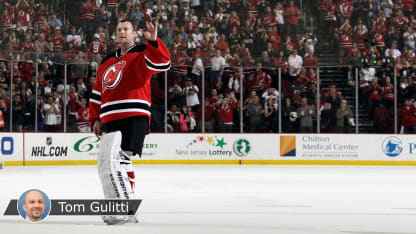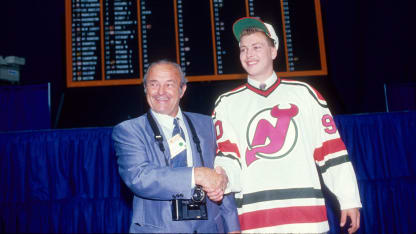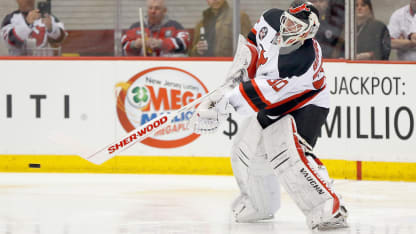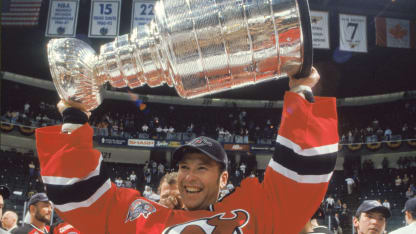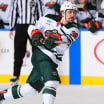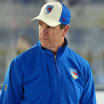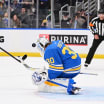"He had the mental toughness to be a goaltender," said Stevens, inducted into the Hockey Hall of Fame in 2007. "It's kind of a lonely position. It's like a pitcher on the mound. You're sort of by yourself in a team sport, and he had the ability to just shrug things off and not let things snowball and get unwound."
Lou Lamoriello, the Devils general manager from 1987 to 2015, points to the 2003 Stanley Cup Final as another example. After being pulled in a 5-2 loss to the Mighty Ducks of Anaheim in Game 6, Brodeur made 24 saves in a 3-0 victory in Game 7.
"How he could dismiss a bad night and recover, how he could just focus in on the moment, is something special," said Lamoriello, now the New York Islanders GM. "I haven't seen many people do it the way he can and not allow a bad goal to get in the way of the next play."
Lamoriello has often said that if he knew how good Brodeur was going to be, the Devils never would have traded down before drafting him. But his elite talent was evident almost immediately when he played four NHL games as a 19-year-old in 1991-92, including a 4-2 win against the Boston Bruins in his debut on March 26, 1992.
"I think as soon as we called him up we knew," Lamoriello said. "It was his athleticism and just all the little things, the intangibles besides talent that you felt about him, his demeanor, his professionalism. Certainly, a lot came from his dad and being around the pros."
Assisting his father on Canadiens photo shoots is how Brodeur first encountered Roy, his childhood idol. But unlike many goaltenders of his generation, Brodeur did not follow the butterfly trend Roy sparked.
To help Brodeur avoid recurring knee problems after two surgeries early in his career, Devils goaltending coach Jacques Caron worked with him on his footwork and got him to play more of a stand-up, hybrid style that utilized his athleticism and instincts. Brodeur credits that change with helping him stay healthy for most of his career while playing more games than any other goalie.
He had 12 seasons when he played at least 70 games, including five of 75 or more. He led the NHL in games six times and in wins nine times.
